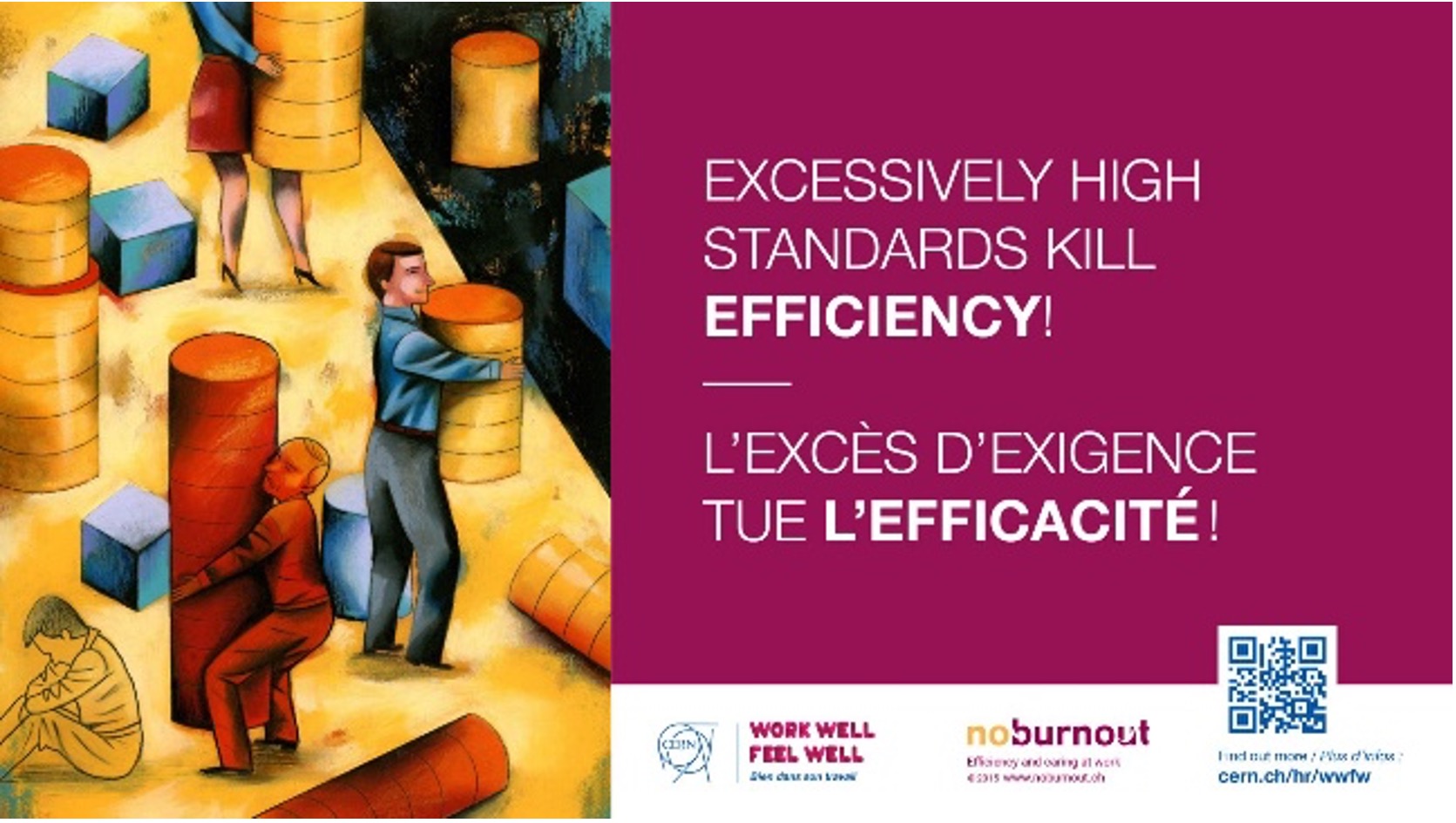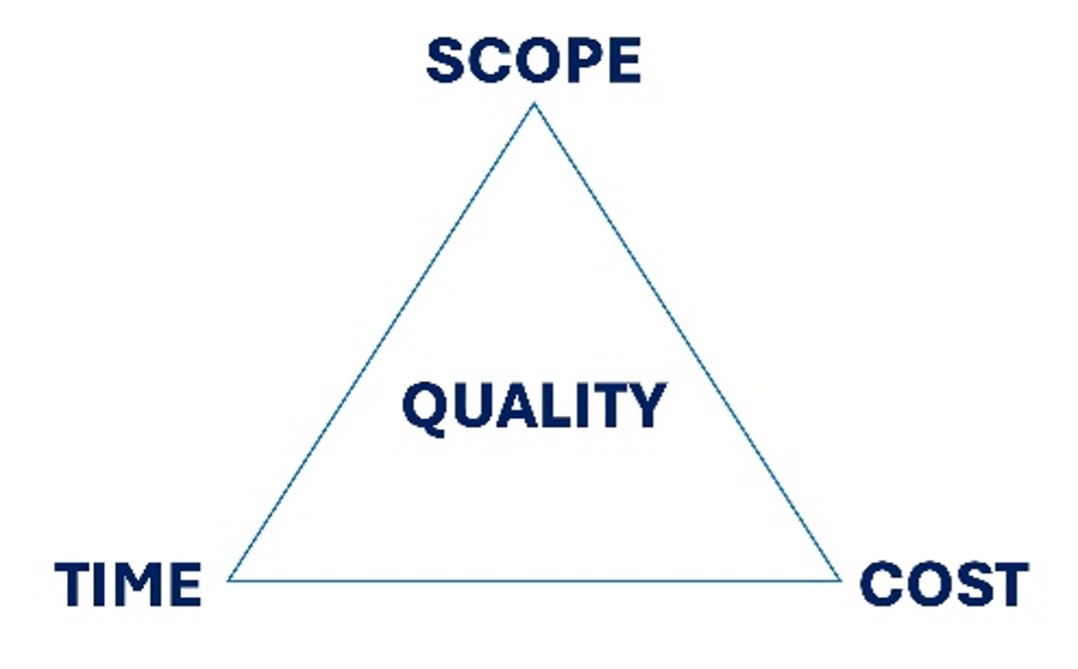Excessively high standards to the detriment of efficiency
By: HR department
30 April 2025 · Voir en français
Part ten of the Work Well Feel Well series looks at finding the balance between excellence and efficiency
When personal standards become too demanding
 Setting our own standards can help us to work efficiently. But excessively high standards – perfectionism – can become a major difficulty at work. Perfection is an ideal that, more often than not, is not in line with the available means. As a result:
Setting our own standards can help us to work efficiently. But excessively high standards – perfectionism – can become a major difficulty at work. Perfection is an ideal that, more often than not, is not in line with the available means. As a result:
- A task is not begun because it is obvious from the outset that the promised ideal can never be fulfilled.
- By seeking to always do better, we fail to meet deadlines.
- Our attention and energy get absorbed by a single task, while the rest of the work builds up. Or, worse still, tasks are carried out to perfection and on time but to the detriment of our health, as it is impossible to maintain this rhythm.
Perfectionists are confronted with the following internal conflict: meet deadlines and accept what they consider to be “poor work” or maintain a level of quality that meets the criteria of their own standards and risk missing deadlines. This puts them under constant pressure.

We can free ourselves from striving for perfection by:
- Recognising everything that we’ve accomplished in a day and feeling happy about it.
- Giving ourselves a pat on the back for having done our work to a satisfactory standard.
- Being satisfied that we’ve given “our best” for today.
- Humbly appreciating the work we have done, whatever it is.
Choose the adequate requirement level
The people involved in a given task need to discuss the level of quality required in order to avoid confusion, put their energy where it is needed most and ensure that the result meets expectations.
It is important to distinguish tasks that require a concentrated effort from those that are less demanding and can be carried out more quickly. By doing this we can be more efficient. It is often estimated that approximately 80% of outcomes can sometimes stem from just 20% of our activities. Prioritising the most impactful tasks can allow us to achieve meaningful results with less time and effort.
Mistakes are a path to success. They help us to learn and grow.
Take action
As part of the “Efficiency and caring at work” campaign, the Work Well Feel Well website now offers useful resources that can be downloaded, including:
- an exercise to create your own satisfaction index;
- an exercise to explore being excellent to a level of 70%;
- the recording of the 2023 CERN Microtalk “Excellenceism vs. Perfectionism”, which advocates that we should strive for excellence instead of unhealthy perfection.
In addition, the CERN training catalogue offers several relevant courses, including “Balancing Performance and Pressure”.
